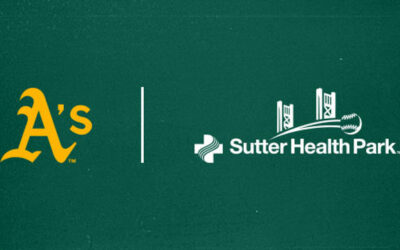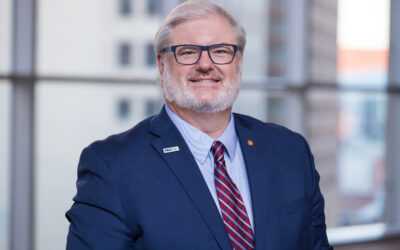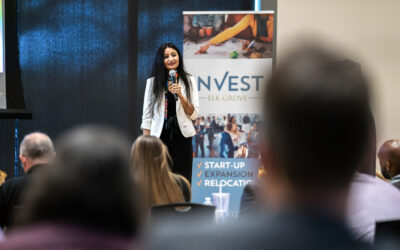BUSINESS, FEATURED
New Technology Company Moves to Sacramento to Give Live Sports The Social Experience They Deserve
February 18, 2018
This article was originally published in Forbes by Gretchen Fox. Gretchen is a contributing writer for Forbes and is the CEO & Founder of MTO Agency, [made to order], a full-service social media agency that prepares businesses for success in the Digital Age.
Imagine: You are sitting at a basketball game, see an awesome play or a quick, confusing turnaround or scuffle, what do you do?
You look up at the monitor to watch the replay and try to make sense of what just happened or when it’s sheer greatness you just witnessed, you momentarily re-live the play in all its glory. You stand up, cheer and high-five the strangers around you — and in the 21st century, you try to share that experience on social media.
But then, you hit a problem: you can’t just grab the play you want to share from the ether. So what do you do? You start searching for it online like a needle in a haystack. Or you do what I did when I wanted to share a brilliant score at the Dallas Stars hockey game I recently attended (thank you Lucky Lou!), and all I got was a shot of fans cheering “score!” It really didn’t do that magic play justice. At. All. The shot was truly amazing and I wanted that play, on video, right then. I wanted to share it with the hundreds of thousands of fans watching on TV (and with my friends missing the game completely).
Well, today, Fantag, a new platform that gives fans the best moments straight to their phones in a shareable format announces the day has arrived. All the plays, on instant replay in the palm of your hand. Finally!
After over a decade of working at the intersection of sports, live events and technology, I can tell you, this day has been a very long time coming. After my early days working with cutting-edge live sports distribution from in-car cameras and live telemetry data with IndyCar Race Control to Wimbledon’s first 30 court simulviewing experience, it’s a bit crazy that the promise of capturing the live experience still hasn’t realized its full social potential, not even close.
In 2016, when I worked with AEG Digital on Super Bowl’s Bud Light Hotel 3 Day Concert Series, we were live streaming and distributing real-time content every three seconds across RollingStone.com and E! Entertainment. This was a very cool experience; however, it was expensive to pull off and it required multiple live social media managers who were in control — not the fan.
This is where Fantag has nailed the use case. Fantag puts the fan in control, with a technology platform that syncs with the network of professional cameras (and fan content) and distributes it directly into mobile apps in the hands of the fan. This is huge for sports.
So, why did it take so long?
Two reasons:
- The technology is more complicated than you might think. Fantag Founder Brian Dombrowski has a long history of working with video technology, particularly with sports, and has created IP for a very difficult problem: figuring out how to align multitudes of content to the same timeline, something they’re calling “Fantag Time” and then, and this is important — serving up the piece of content fans want most. If you think about it, finding an amazing play in a flow sport like hockey or basketball where quick turnovers and quick hits happen frequently and then add how hard it is to figure out when a play starts and end, you can start seeing the complexities of the challenge very quickly. It took someone with Brian’s unique experience to accurately identify the problem and create a real solution.
- Not every sports league or team is at the same level when it comes to digital innovation and yet, everybody wants their very own branded experience where they can control the content and maintain their audience. That means getting adoption by sports properties requires a platform solution, one that integrates with existing technology for a multitude of individual league and team experiences, not merely a third party consumer app (which is happening, too).
When I flash back to my time as the vice president of social media at Ticketmaster, I was not surprised when I found out Fantag is demoing the technology first with the Sacramento Kings along with a couple of other organizations. Back then, I had a short list of teams that were enthusiastic about trying new technology or cutting-edge programs and the Kings were on that list.
When I shared this insight with John Stone, a former technology advisor to the Kings and current Board Observer and Adviser for Fantag, he said that’s been his experience, too, and “that it’s even more true now.” He explained how the Kings are early adopters, “in great part due to some of the owners and individuals running the organization, particularly the Jacobs family and Vivek Ranadivé (founder of TIBCO) who has a clear vision for a global brand delivering leading-edge experiences in and out of the arena.”
With the team situated in such close proximity to both the San Francisco Bay Area and Silicon Valley, it makes sense that the organization would be on the leading edge of sports technology.
I was lucky to have a chance to have a good chat with Sacramento’s Mayor Steinberg and ask him how important he sees technology for the future of Sacramento, he quickly exclaimed, “The future is technology in Sacramento.”
He explained Fantag is a great example of something bigger happening in Sacramento, an overall commitment to growing the tech sector and creating more resources for the business community of what he called a “Mega Region,” the triangular region between Sacramento, San Francisco Bay Area and Silicon Valley. When he said bigger, he really does mean bigger.
Barry Broome, president of the Greater Sacramento Economic Council, who is bigger than life himself, shared statistic after statistic of the growth happening, particularly interesting to me is the big percentage of talent migrating from the Bay Area. People who are ready for more affordable homeownership, less traffic, a better work-life balance and better weather.
Brian is one of those people. When we discussed his upcoming move to Sacramento (along with building a Fantag office there), he sounded truly excited about what the area has to offer (including a fairly quick trip back to his hometown of San Jose). He’s one of four people I personally know who have made or are making that move. Sounds like a lot more going on than just cowbells!
What do you think? Will Sacramento become the next highly desirable destination for entrepreneurs? If you are considering it, I’ll tell you, just a 20 minute phone call with Barry and you’ll be sold, hook, line and sinker.
Related Articles
Sutter Health Park to Host A’s Baseball
Today, the Sacramento Kings, majority owner of the five-time Pacific Coast League champion Sacramento River Cats, announced that Sutter Health Park will host the A’s for three MLB seasons starting in 2025 with an option for a fourth – ahead of the team’s transition to Las Vegas.
David Sander (City of Rancho Cordova)
David Sander is the mayor of Rancho Cordova and a member of GSEC’s Board of Directors. Learn more about why he values economic development, working with GSEC and living and working in the Greater Sacramento region in the Q&A below.




